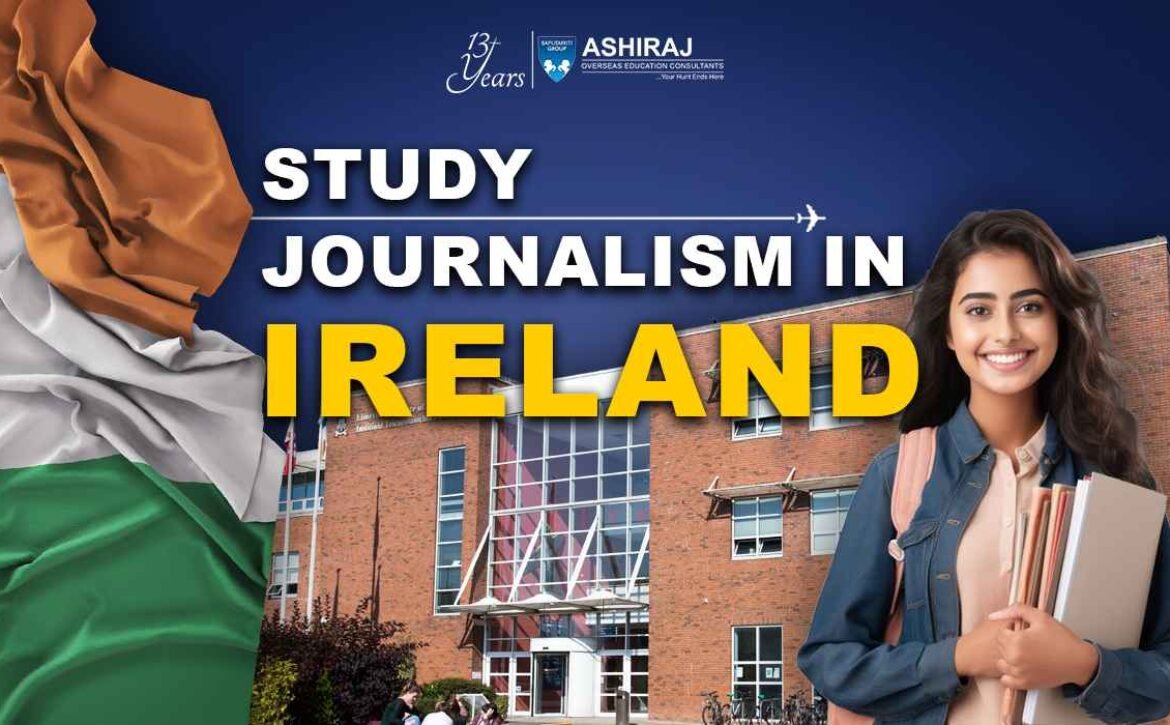
Journalism in Ireland
Journalism in Ireland is a vibrant and essential component of the country’s media landscape. With a rich history deeply intertwined with the nation’s cultural and political evolution, Irish journalism continues to play a crucial role in shaping public discourse and holding power to account. From traditional print newspapers to digital platforms, Irish journalists navigate a dynamic media environment to deliver news and analysis to audiences across the Emerald Isle and beyond.
In recent years, Journalism in Ireland has witnessed significant transformations driven by technological advancements and shifting audience behaviors. While established media outlets adapt to the digital age, independent voices and alternative platforms have emerged, contributing to a diverse media ecosystem. However, challenges such as declining revenues, questions of journalistic ethics, and the influence of social media on information dissemination underscore the ongoing evolution and debate within Irish journalism. Despite these challenges, the commitment to quality reporting and the pursuit of truth remain fundamental values for journalists in Ireland as they continue to inform, engage, and provoke thought in society.
Why to Study Journalism in Ireland?
- Rich Tradition: Ireland boasts a long and illustrious history in journalism, providing students with a deep-rooted understanding of the profession’s heritage and significance within the country’s cultural and political context.
- Academic Excellence: Renowned universities and institutions across Ireland offer top-notch journalism programs, equipping students with theoretical knowledge and practical skills essential for success in the field.
- International Perspective: Ireland’s strategic location within Europe and its global connections offer students opportunities to gain insights into international journalism practices, fostering a broader understanding of media dynamics beyond national borders.
- Industry Engagement: Students studying journalism in Ireland benefit from close ties with the industry, including internships, guest lectures, and networking events, providing valuable real-world experience and enhancing career prospects.
- Technological Innovation: With a growing emphasis on digital media and technological advancements, studying journalism in Ireland exposes students to cutting-edge tools and practices shaping the future of the industry.
- Cultural Diversity: Ireland’s multicultural society enriches the journalism experience, allowing students to explore a wide range of perspectives and issues, preparing them for the diverse realities of modern media landscapes.
- Creative Hub: From literature to film, Ireland has long been celebrated for its artistic contributions, providing an inspirational environment for aspiring journalists to cultivate their creativity and storytelling abilities.
- Personal Growth: Studying journalism in Ireland offers not only academic and professional development but also opportunities for personal growth, fostering independence, critical thinking, and a passion for truth and justice—core values of journalism in Ireland.
Top Universities to Study Journalism in Ireland
University | QS World University Rankings 2023 | Type of University | Average Annual Fees | Programs Offered |
University College Dublin | 175 | Public | €14,000 – €20,000 | BA in Journalism, MA in Journalism |
Dublin City University | 231-240 | Public | €12,000 – €18,000 | BA in Journalism, MA in Journalism, PhD in Journalism |
University of Limerick | 301-350 | Public | €12,000 – €16,000 | BA in Journalism & Digital Communication, MA in Journalism Studies |
National University of Ireland, Galway | 351-400 | Public | €13,000 – €17,000 | BA in Journalism, MA in Journalism |
Cork Institute of Technology | 601-650 | Public | €10,000 – €14,000 | BA in Journalism, MA in Journalism |
These universities stand out as top institutions for studying journalism in Ireland, offering diverse programs designed to equip students with the skills and knowledge necessary to thrive in the dynamic media landscape. From undergraduate to postgraduate levels, these institutions provide a range of courses tailored to meet the evolving demands of the journalism profession. With a focus on practical experience and theoretical understanding, students can expect to receive comprehensive training that prepares them for careers in various media sectors. Whether pursuing a Bachelor’s degree or a Master’s program, students studying journalism in Ireland can benefit from the expertise of renowned faculty members and access to state-of-the-art facilities, ensuring a rewarding educational experience that lays the foundation for success in the field.
Course Curriculum for Journalism in Ireland
- Comprehensive Study: Journalism in Ireland offers a well-rounded curriculum covering diverse aspects of the profession, including media ethics, news writing, broadcasting, and investigative journalism.
- Practical Training: Students engage in hands-on learning experiences, including internships, workshops, and multimedia projects, allowing them to develop essential skills in reporting, interviewing, and multimedia storytelling.
- Digital Media Emphasis: With a focus on the digital age, course curricula integrate training in digital journalism, social media management, and data journalism, preparing students for the evolving landscape of online news consumption.
- Critical Analysis: Journalism programs in Ireland emphasize critical thinking and analysis, encouraging students to examine media narratives, evaluate sources, and question prevailing assumptions in their reporting.
- Specialized Tracks: Many universities offer specialized tracks or elective courses in areas such as sports journalism, photojournalism, and environmental reporting, allowing students to tailor their studies to their interests and career goals.
- Industry Connections: Course curricula often include opportunities for industry engagement, such as guest lectures from media professionals, field trips to newsrooms, and collaborations with media organizations, providing valuable networking opportunities and real-world insights.
International Perspectives: Journalism programs in Ireland often incorporate a global perspective, exploring international media systems, cross-cultural communication, and global journalism issues, preparing students for careers in an increasingly interconnected world.
Eligibility Criteria & Admission Requirements for MS in Journalism in Ireland
- Language Proficiency: Prospective students must demonstrate proficiency in English through standardized tests such as IELTS or TOEFL. For IELTS, a minimum score of 6.5 is typically required, while for TOEFL, a score of 90 or above is commonly accepted.
- Academic Qualifications: Applicants are usually required to hold a bachelor’s degree from a recognized institution, preferably in a relevant field such as journalism, communications, or media studies.
- Standardized Tests: Some universities may require GRE or GMAT scores for admission to journalism programs. The minimum scores vary by institution but typically range from 300 to 320 for GRE and 550 to 650 for GMAT.
- Documentation: Applicants need to submit their academic certificates, including transcripts and diplomas, to demonstrate their educational background and qualifications.
- Work Experience: While not always mandatory, some journalism programs may prefer applicants with relevant work experience in media, journalism, or related fields.
Test | Minimum Score |
IELTS | 6.5 |
TOEFL | 90 |
GRE | 300-320 |
GMAT | 550-650 |
Passport & Student Visa: International students must possess a valid passport and obtain a student visa to study in Ireland. The visa application process requires documentation of acceptance into a recognized academic program and proof of financial means to support oneself during the course of study.
These eligibility criteria ensure that students admitted to journalism programs in Ireland have the necessary language proficiency, academic background, and potential to succeed in their studies and future careers in the field of journalism.
Documents Required for Studying Journalism in Ireland
- Passport: A valid passport is essential for international students applying to study journalism in Ireland. It serves as proof of identity and nationality.
- Letters of Recommendation (LOR): Typically, two letters of recommendation are required from academic or professional referees who can attest to the applicant’s qualifications, skills, and character.
- Statement of Purpose (SOP): An SOP outlining the applicant’s motivations, career aspirations, and reasons for choosing to study journalism in Ireland is usually required.
- Curriculum Vitae (CV): A detailed CV highlighting the applicant’s educational background, work experience, internships, relevant skills, and achievements is necessary for the application process.
- Official High School Transcripts: Transcripts from the applicant’s high school or secondary education institution are required to demonstrate academic performance and eligibility for higher education.
- Educational Certificates: Certificates or diplomas from previous academic institutions, including degrees relevant to journalism or media studies, are essential for admission consideration.
- Work Experience Certificate: If applicable, a certificate documenting any relevant work experience in journalism, media, or related fields may be required to support the applicant’s candidacy.
- Proof of Financial Resources: International students must provide evidence of sufficient financial resources to cover tuition fees, living expenses, and other costs associated with studying journalism in Ireland.
These documents are crucial for the application process for journalism programs in Ireland, ensuring that applicants meet the necessary academic, professional, and financial requirements for admission.
Admission Process for Journalism in Ireland
- Research Programs: Explore journalism programs offered by universities in Ireland, considering factors such as curriculum, faculty expertise, and campus facilities.
- Check Eligibility: Review the admission requirements for each program, including academic qualifications, language proficiency, and standardized test scores (IELTS or TOEFL, GRE or GMAT).
- Prepare Documents: Gather necessary documents such as passport, educational transcripts, certificates, letters of recommendation (LOR), statement of purpose (SOP), curriculum vitae (CV), work experience certificate, and proof of financial resources.
- Submit Applications: Complete the online application process for selected journalism programs, ensuring all required documents are uploaded and application fees are paid.
- Await Decision: Wait for the admission committee to review your application. This process may take several weeks, so be patient and monitor your application status regularly.
- Receive Offer Letter: Upon acceptance, you will receive an offer letter from the university outlining the terms of admission, including program details, tuition fees, and enrollment deadlines.
- Confirm Enrollment: If you decide to accept the offer, follow the instructions provided to confirm your enrollment and pay any necessary deposits or fees.
- Apply for Visa: International students must apply for a student visa to study journalism in Ireland. Prepare and submit the required documents to the Irish embassy or consulate in your home country.
- Plan Arrival: Arrange travel plans and accommodation for your arrival in Ireland, ensuring a smooth transition to student life.
Following these steps will help streamline the admission process for studying journalism in Ireland, ensuring a successful start to your academic journey in the field.
“Education is the most powerful weapon which you can use to change the world.”
Nelson Mandela
Cost of Journalism Course in Ireland
- Tuition Fees: The cost of tuition for journalism programs in Ireland varies depending on the university and level of study. On average, undergraduate programs range from €10,000 to €20,000 per year, while postgraduate programs can cost between €12,000 and €25,000 annually.
- Living Expenses: Students should budget for accommodation, food, transportation, and other living expenses while studying in Ireland. On average, monthly living costs can range from €800 to €1,500, depending on the location and lifestyle choices.
- Scholarships and Financial Aid: Various scholarships, grants, and financial aid options are available to help offset the cost of studying journalism in Ireland. Eligibility criteria and application processes vary, so students should research and apply for relevant funding opportunities.
- Part-Time Work: International students are allowed to work part-time while studying in Ireland, which can help supplement their income and cover expenses. However, it’s essential to balance work commitments with academic responsibilities.
- Health Insurance: All international students studying in Ireland are required to have health insurance coverage. The cost of health insurance varies depending on the provider and coverage options.
Understanding the cost of studying journalism in Ireland is crucial for prospective students to plan their finances effectively and ensure a smooth academic experience in the country.
Scholarships for Journalism Courses in Ireland
Scholarship Name | Amount | Application Deadline | Eligibility Criteria |
Government of Ireland International Education Scholarships | Full tuition fees, €10,000 for living expenses | Varies (typically February) | Open to non-EU/EEA students for postgraduate studies in Ireland. Based on academic excellence and leadership potential. |
Irish Research Council Government of Ireland Postgraduate Scholarship | Full tuition fees, annual stipend of €16,000 | December | Open to highly qualified applicants (including international students) pursuing research-based postgraduate degrees. |
Fulbright Irish Awards | Varies | October | Open to Irish citizens and residents, as well as U.S. citizens, for academic or professional exchange between Ireland and the U.S. |
UCD Ad Astra Academic Scholarship | Full tuition fees, accommodation, stipend | January | Available to exceptional students applying to undergraduate or postgraduate programs at University College Dublin (UCD). |
DCU John Thompson Scholarship | €1,500 – €3,000 | May | Open to students applying to Dublin City University (DCU) based on academic achievement and financial need. |
These scholarships provide valuable financial support for students pursuing journalism studies in Ireland, covering tuition fees, living expenses, and other costs associated with higher education. Prospective applicants should carefully review the eligibility criteria and application deadlines for each scholarship opportunity to maximize their chances of securing funding for their academic endeavors in the field of Journalism in Ireland.
Career Opportunities After Journalism in Ireland
Job Profile | Description | Average Salary (per year) |
Journalist | Research, investigate, and report news stories for various media platforms. | €25,000 – €40,000 |
News Editor | Manage editorial content, supervise reporters, and oversee news production. | €35,000 – €50,000 |
Broadcast Journalist | Present news stories on television or radio, conduct interviews, and report live from the field. | €30,000 – €45,000 |
Digital Content Producer | Create multimedia content for online platforms, including articles, videos, and social media posts. | €25,000 – €40,000 |
Photojournalist | Capture images to accompany news stories, often working in challenging environments to document events visually. | €25,000 – €40,000 |
Journalism in Ireland offers a diverse range of career opportunities across various media sectors, including print, broadcast, and digital media. Graduates can pursue roles as journalists, news editors, broadcast journalists, digital content producers, or photojournalists, contributing to the dissemination of news and information in society. Salaries in the journalism field in Ireland vary depending on factors such as experience, location, and employer, with opportunities for advancement and specialization over time. Aspiring journalists can expect rewarding careers that allow them to inform, engage, and inspire audiences through impactful storytelling and investigative reporting.
Frequently Asked Questions About Journalism in Ireland
Some of the top universities in Ireland offering journalism programs include University College Dublin, Dublin City University, and University of Limerick.
Admission requirements typically include a bachelor’s degree, language proficiency (IELTS or TOEFL), and sometimes standardized test scores (GRE or GMAT).
Yes, there are scholarships available for international and domestic students pursuing journalism studies in Ireland, including government-funded scholarships and university-specific awards.
The average tuition fee for journalism programs in Ireland ranges from €10,000 to €20,000 per year for undergraduate studies and may vary for postgraduate programs.
Yes, international students are allowed to work part-time while studying in Ireland, which can help supplement their income and cover living expenses.
Journalism graduates in Ireland can pursue diverse career opportunities, including roles as journalists, news editors, broadcast journalists, digital content producers, and photojournalists.
While work experience is not always mandatory, having relevant experience in journalism, media, or related fields can strengthen an applicant’s candidacy.
Applicants are typically required to demonstrate proficiency in English through standardized tests such as IELTS or TOEFL, with minimum score requirements set by universities.
Yes, many journalism programs in Ireland offer internship opportunities with media organizations, providing valuable real-world experience for students.
International students can apply for a student visa through the Irish embassy or consulate in their home country, providing required documents such as acceptance letters and proof of financial resources.




